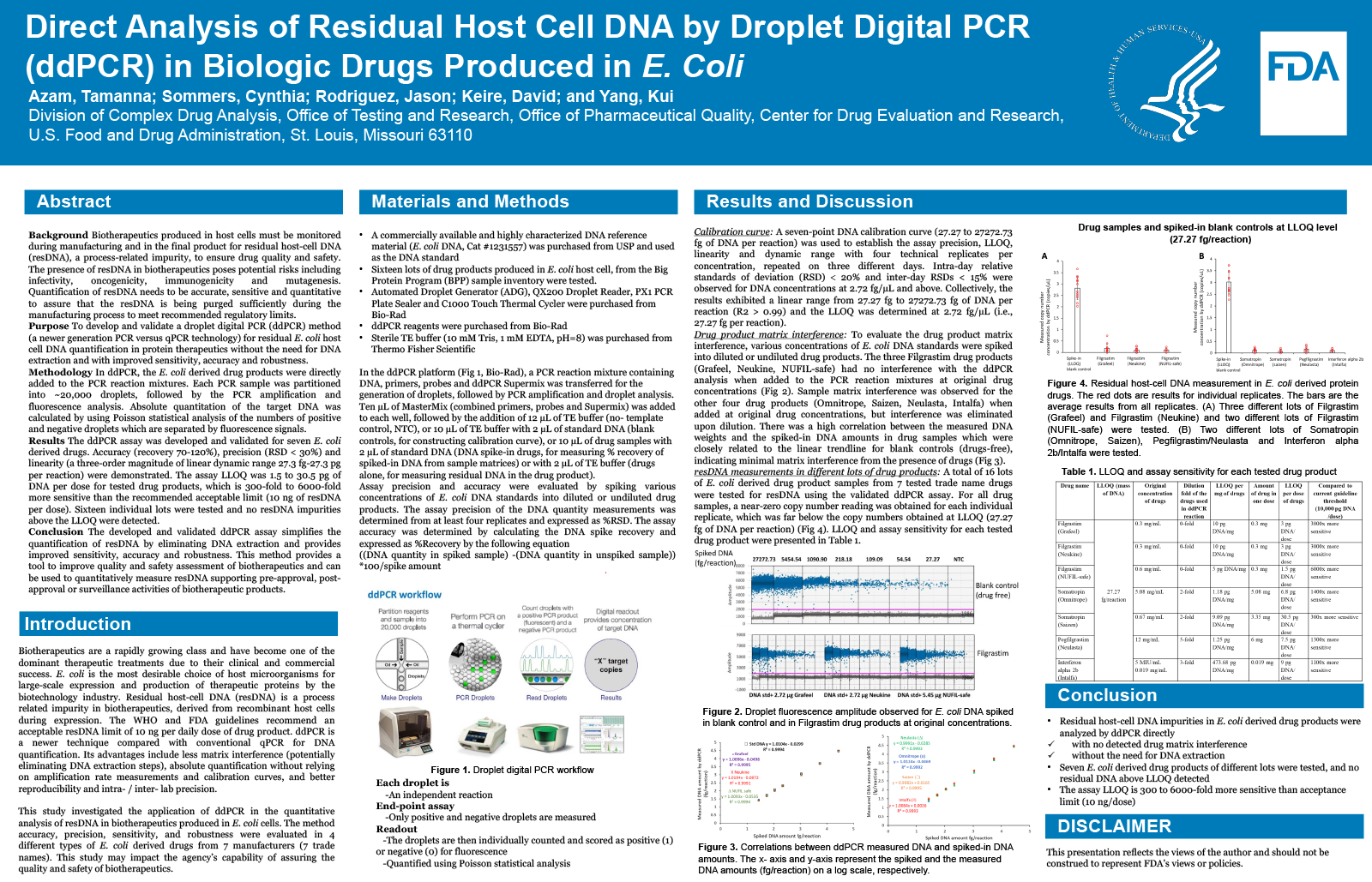2021 FDA Science Forum
Direct Analysis of Residual Host Cell DNA by Droplet Digital PCR (ddPCR) in Biologic Drugs Produced in E. Coli
- Authors:
- Center:
-
Contributing OfficeCenter for Drug Evaluation and Research
Abstract
Background
Biotherapeutics produced in host cells must be monitored during manufacturing and in the final product for residual host-cell DNA (resDNA) which is a process-related impurity, to ensure the drug quality and safety. The presence of resDNA in biotherapeutics poses potential risks including infectivity, oncogenicity, immunogenicity and mutagenesis. Quantification of resDNA needs to be accurate, sensitive and quantitative to assure that the resDNA is being purged sufficiently during the manufacturing process to meet recommended regulatory limits in the final drug product.
Purpose
To develop and validate a droplet digital PCR (ddPCR) method (a newer generation PCR than conventional qPCR technology) for residual E coli host cell DNA quantification in protein therapeutics without the need for DNA extraction and with improved sensitivity, accuracy and robustness.
Methodology
In ddPCR, the E coli derived drug products were directly added to the PCR reaction mixtures. Each PCR sample was partitioned into ~20,000 droplets, followed by the PCR amplification and fluorescence analysis. Absolute quantitation of the target DNA was calculated by using Poisson statistical analysis of the numbers of positive and negative droplets separated by fluorescence signals detected.
Results
The ddPCR assay was developed and validated for seven E coli derived drugs. Accuracy (recovery 70-120%), precision (RSD < 30%) and linearity (a three-order magnitude of linear dynamic range 27.3 fg-27.3 pg per reaction) were demonstrated. The assay LLOQ was 1.5 to 30.5 pg of DNA per dose for tested drug products, which is 300-fold to 6000-fold more sensitive than the recommended acceptable limit (10 ng of resDNA per dose). Sixteen individual lots were tested and no resDNA impurities above the LLOQ were detected.
Conclusion
The developed and validated ddPCR assay simplifies the quantification of resDNA by eliminating DNA extraction and provides improved sensitivity, accuracy and robustness. This study may impact the agency’s capability of assuring the quality and safety of biotherapeutics. The data show an in-house analytical capability for accurate and robust resDNA quantification to support pre-approval, post-approval or surveillance activities on biotherapeutic products.

